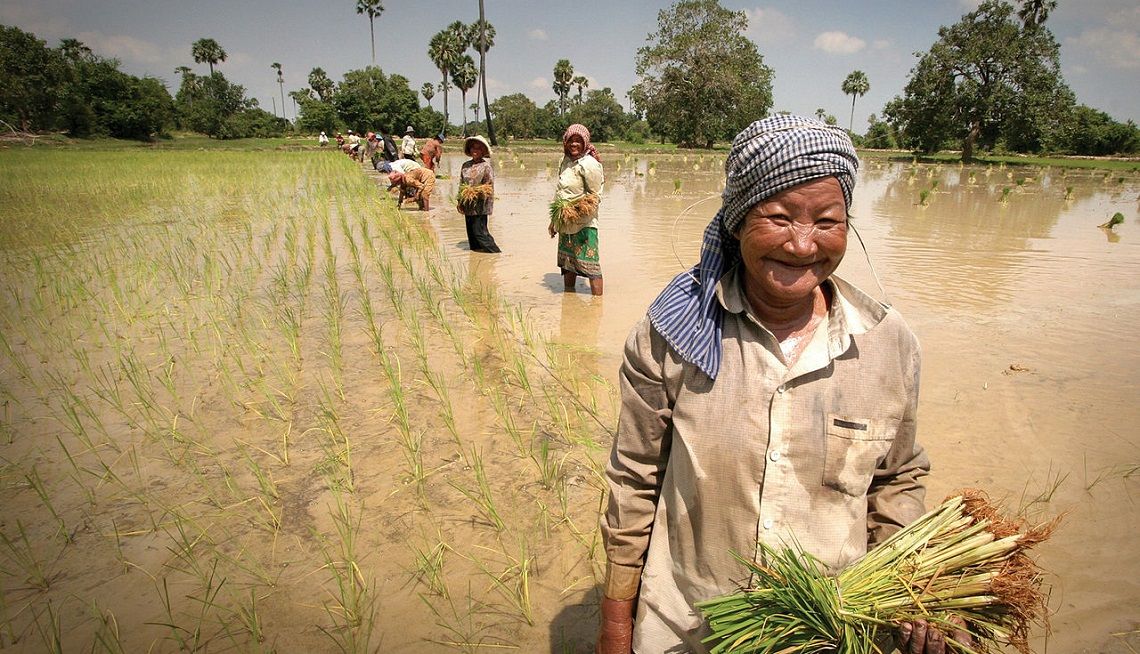Exclusive: Inside Cambodia’s financial revolution
By Chia Jie Lin and Apala Bhattacharya
H.E. Chea Serey, Assistant Governor and the Director General of National Bank of Cambodia, shares plans to improve financial inclusion and tackle corruption.

Mobile phones will play a big role in bringing banking to citizens all across Cambodia, especially in rural areas, believes Chea Serey, Assistant Governor and the Director General of the National Bank of Cambodia. The country’s mobile connectivity rate is the highest in Southeast Asia: 173% of the population have a SIM card or mobile phone. “A baby who’s not born yet already has a subscription”, she says.
In an exclusive interview with GovInsider, Chea shares the national bank’s vision for mobile payments in rural Cambodia; tackling corruption in government payments; and improving financial inclusion for women.
Banking for the people
Top on the national bank’s agenda is improving access to financial services, notes Chea. “It's very important to have an inclusive economy, and also to have efficiency in whatever you're doing,” she says.
The country is rapidly modernising, with robust economic growth buoyed by textiles, apparel exports, tourism and agriculture. But for migrant workers from rural Cambodia working in factories and farms, access to banks is a huge challenge. In 2016, only 59% of the population had access to formal banking services.
The bank is working with companies to bring mobile payments to rural citizens who have little to no access to banking services. “It's the ability to use technology to reach out to the people in remote areas,” she says. According to her, banks do not usually operate in rural areas, as they are “too remote and costly to serve”. But, mobile payments have enabled banks to bring their services to rural citizens at little cost.
Where many citizens don’t have access to bank accounts, cashless mobile payments provide citizens a chance to easily conduct everyday transactions. A large bank in Cambodia, ACLEDA, has created an app which lets users transact money even without an official bank account - anybody can sign up to use it.
QR code-based payment is also on the rise in the country, explains Chea. The most common local payments app Wing has recently launched a QR code payment feature. Meanwhile, AliPay is offering QR code payments to Chinese tourists through a partnership with another local payments app, PiPay.
The central bank is looking to standardise the QR codes used by the different apps, she adds. "There are 20 payment service providers who are possibly offering 20 different QR codes for payment." Instead of having different QR codes in each app, the central bank hopes to have a national one that all payment providers can use.
Tackling corruption
Digital payments are key to solving one of Cambodia’s largest problems: corruption. Large sums of money are often lost to payroll fraud, bribery and other financial crimes, according to GAN’s Business Anti Corruption report. Earlier this year, the Corruption Perception Index released by Transparency International ranked Cambodia as ASEAN’s most corrupt country for the third year running.
Digital records from electronic transactions will allow banks and organisations to keep track of where their money is going, enabling early detection of potential fraud, Chea says. “That's in a way how the national bank is contributing to the government’s effort in tackling corruption - through increased transparency and efficiency in payment transactions.” For one, the government has begun replacing cash-only salary payments with bank automated transfers to cut payroll fraud.
A local payments gateway Pi Pay has signed an agreement with the Ministry of Public Works and Transit to provide cashless transactions on public transit services such as bus and ferry fees and driver licence registrations in 25 provinces in the country.
Creating income
Better access to financial services will help tackle poverty in rural areas and create jobs, Chea believes. “There's still many people who do not have an income to save,” she says. According to a study by the United Nations Development Programme and the Oxford Poverty and Human Development Initiative, 34.9% of Cambodians still live in poverty. This makes saving to ultimately deposit in a bank difficult, especially for rural women with no income.
Payment service providers have begun recruiting rural women as “cash agents”. Rural families can conduct online transactions using mobile payments where local family-run shops double as an informal ATM. Cash agents help deposit cash into the mobile accounts which can then be transferred electronically across Cambodia. For one, local payment provider Wing has since recruited over 5000 agents, paying each agent over US$500 every month, the Khmer Times reported.
The women can use their commission fees from their work to set up small businesses in their villages, creating a source of income - and savings. “This is a good example of bringing the ‘cash-less’ into the ‘cash-rich’ society, while at the same bringing them into the formal economy,” she says.
Cambodia’s national bank is looking to bring banking to rural Cambodia, tackle corruption in the country and improve financial inclusion for women all in a quiet financial revolution.